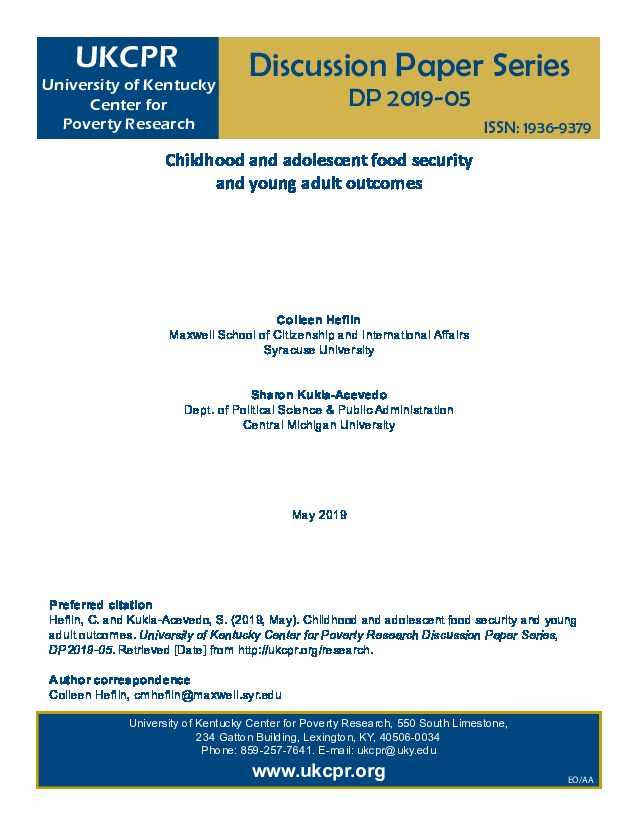Exposure to stressful life experiences during childhood, such as food insecurity, can have negative consequences for attainment later in life. The developmental timing of stressful events and how they influence outcomes over the life course is a critical area of research. Indeed, a more comprehensive understanding of the latter life consequences of childhood food insecurity could guide policy-makers in designing more effective social policies to reduce the severity of the poor life outcomes. This project uses data from the Panel Study of Income Dynamics to estimate the young adult impacts (as late as age 25) of food insecurity experienced in discrete childhood stages – middle childhood (ages 5-10), early adolescence (ages 11-14), and middle adolescence (ages 15-18). It aims to identify which childhood stage-specific effects of food insecurity are most important to five young adult outcomes in two main areas – risky sexual behaviors and criminal justice involvement. Results provide consistent evidence that the mean food security scores in middle childhood are associated with the criminal justice involvement outcome. The results are less consistent with the sexual risk taking outcomes. Middle childhood food insecurity is associated with the number of sexual partners in young adulthood, while early adolescent food insecurity is associated with the number of children in young adulthood. Results indicate that male respondents appear to be more sensitive to food insecurity than females.
Research
PSIDPDF Thumbnail
